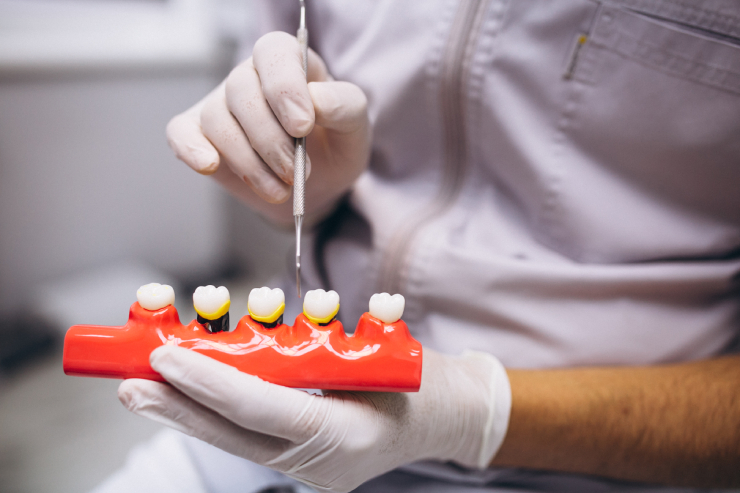
A dental crown, sometimes known as a “cap,” is a custom-made cover that encases the entire visible portion of a damaged or decayed tooth. It restores the tooth’s shape, size, strength, and appearance. Crowns are typically recommended when a tooth is too damaged to be repaired with a simple filling but not damaged enough to be extracted.
We offer a variety of dental crowns to suit your needs and preferences:
Porcelain Crowns: These are popular for their natural appearance and ability to blend seamlessly with your existing teeth. Porcelain crowns are ideal for front teeth or areas where aesthetics are a priority.
Porcelain-Fused-to-Metal (PFM) Crowns: These crowns combine the strength of metal with the aesthetic appeal of porcelain. The metal base provides durability, while the porcelain coating offers a natural look.
Metal Crowns: Made from gold, palladium, or other metal alloys, these crowns are known for their strength and longevity. They are typically used for molars, where the forces of chewing are greatest.
Zirconia Crowns: Zirconia is a type of ceramic known for its durability and natural appearance. These crowns are strong and can withstand heavy biting forces, making them suitable for both front and back teeth.
The process of getting a dental crown usually involves two visits to our clinic:
First Visit – Tooth Preparation:
Second Visit – Crown Placement: